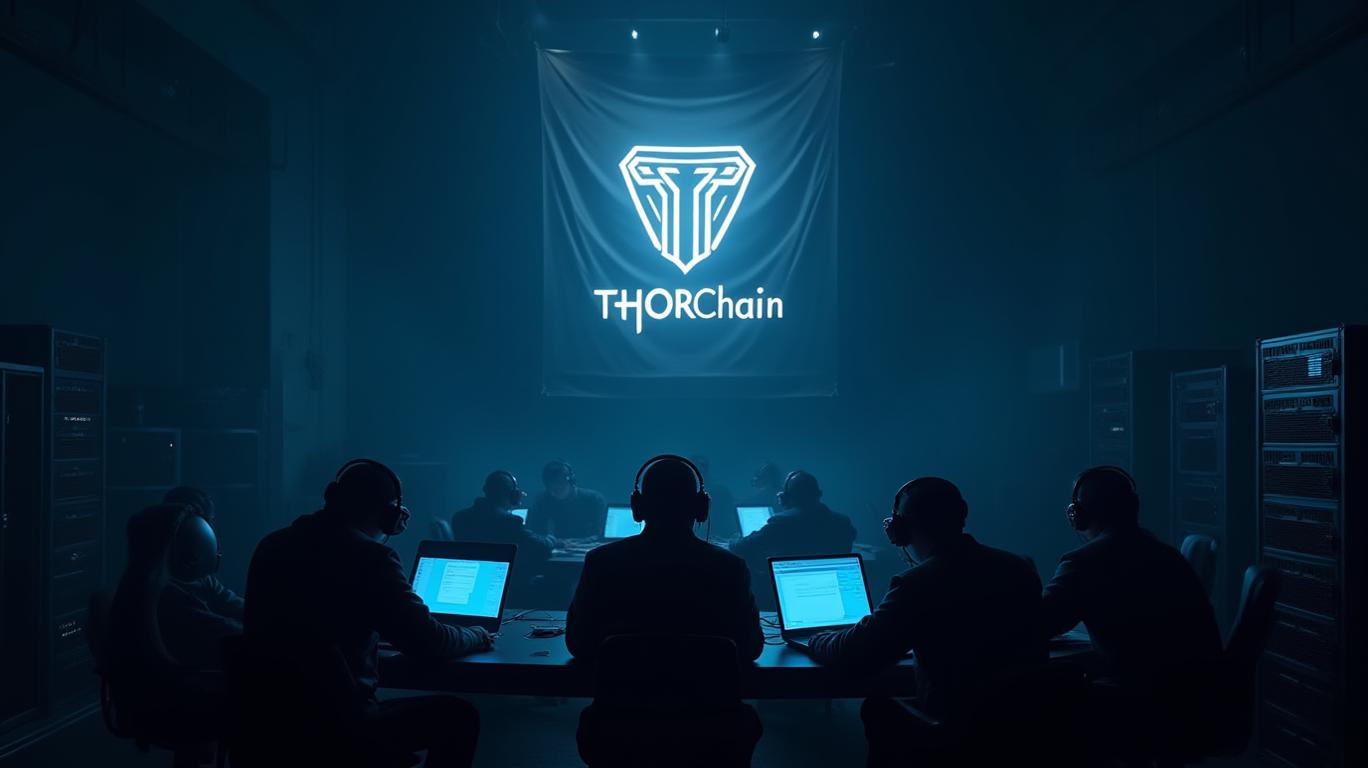THORChain Faces Scrutiny After North Korean Hackers Use Protocol for Money Laundering
THORChain, a decentralized finance (DeFi) protocol, finds itself at a critical juncture as it grapples with allegations of facilitating money laundering. The protocol has been under scrutiny following the exploitation of Bybit by North Korean state-backed hackers, known as the Lazarus Group, who used THORChain to convert stolen Ether (ETH) to Bitcoin (BTC). The hackers completed the conversion within just 10 days, highlighting the protocol's role in the illicit activity.
Supporters of THORChain have defended the protocol by emphasizing its decentralized nature, arguing that it is unfair to label it as a money laundering tool. They point out that THORChain is a decentralized swap protocol, and the output of its transactions is traceable, unlike mixers designed to conceal cryptocurrency fund trails. Federico Paesano, an investigations lead, argued that the hackers did not launder the funds but merely converted them across blockchains, a process that is fully traceable.
However, the controversy has exposed internal conflicts and governance cracks within THORChain. Three validators initially voted to halt ETH trading to blockXYZ-- the hackers, but their decision was quickly overturned by four other validators. This incident revealed a contradiction in THORChain's governance model, where decentralization is selectively applied based on the protocol's interests. The backlash led to the resignation of key developers, including Pluto and TCB, who hinted at leaving unless governance issues were addressed.
THORChain's founder, John-Paul Thorbjornsen, responded to the criticism by comparing the protocol to centralized exchanges that facilitate illicit transactions without facing similar scrutiny. He questioned whether other nodes and developers should be held accountable for transaction fees earned from illicit activities. This defense, however, did not quell the growing concerns about THORChain's role in enabling criminal activities.
The controversy surrounding THORChain raises broader questions about the balance between decentralization and responsibility in DeFi protocols. Rachel LinLIN--, CEO of decentralized exchange SynFutures, suggested that protocol-level innovations could automate safeguards against illicit activity, allowing DeFi to remain neutral while addressing regulatory concerns. However, the current situation highlights the challenges faced by DeFi protocols in maintaining their decentralized ethos while navigating the complexities of illicit finance.
THORChain's entanglement with North Korean hackers has put it at a crossroads. The protocol must decide 
Quickly understand the history and background of various well-known coins
Latest Articles
Stay ahead of the market.
Get curated U.S. market news, insights and key dates delivered to your inbox.

Comments
No comments yet